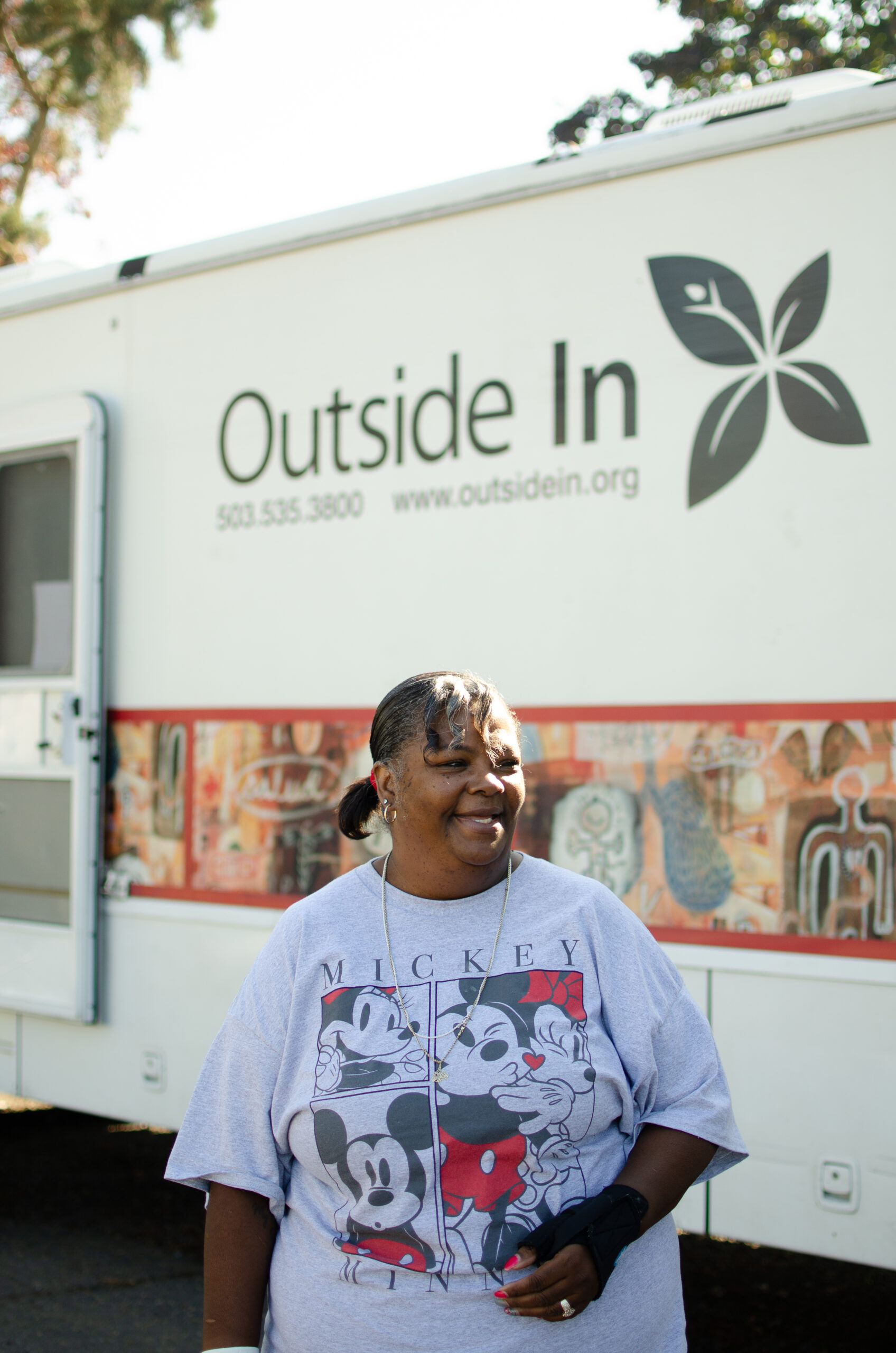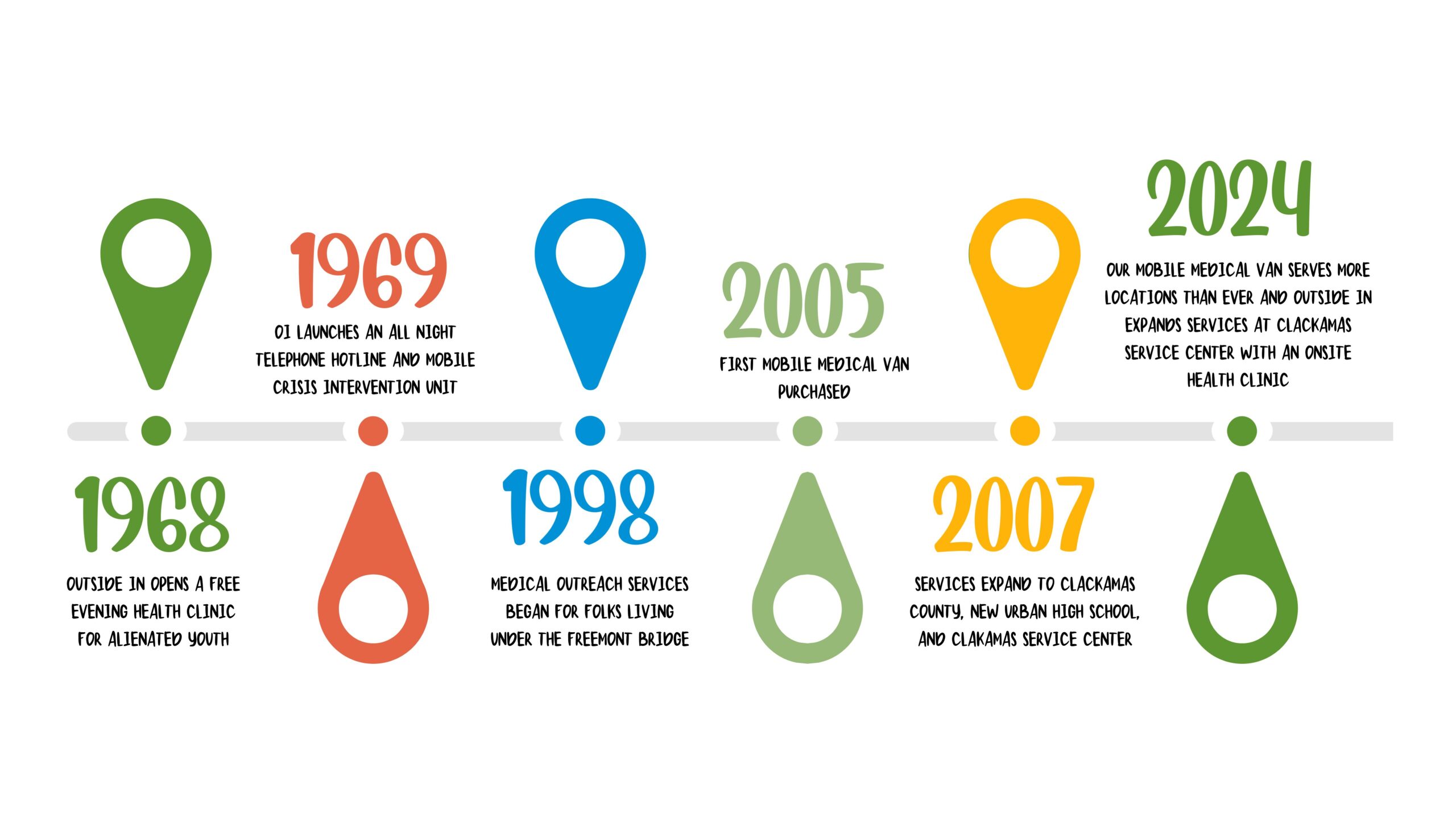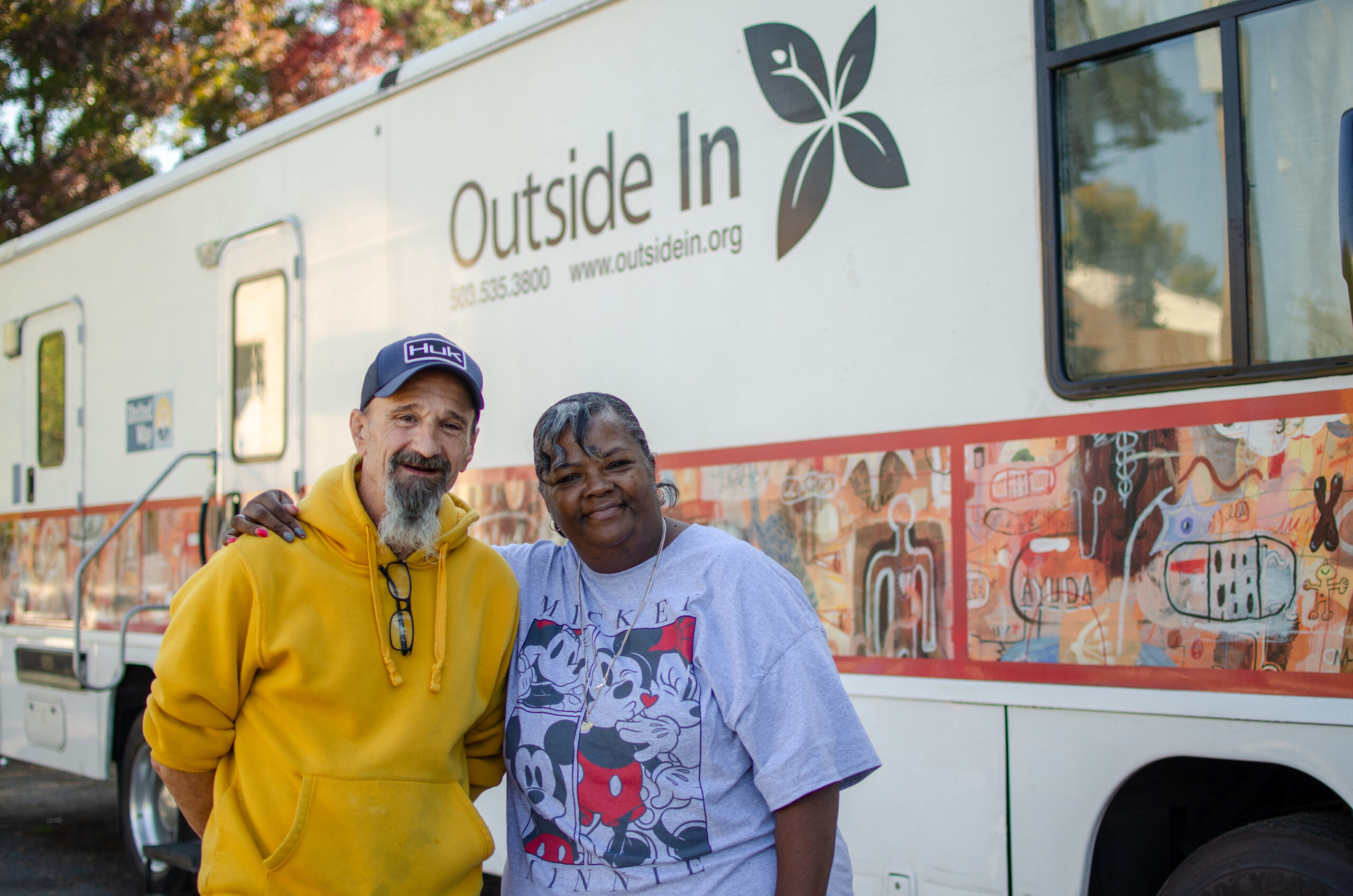BEYOND WALLS BEYOND LIMITS
" a lot of people outside this place judge them. We don't judge them - we care. "
Since starting to offer health care to young people living on the streets of Portland in 1968, the heart of our services has been meeting people where they are. Today, this sentiment still drives us and is perhaps most embodied by our mobile medical program. Today, the mobile team provides vital services across the city of Portland. As you’ll see, our community is what makes this program so special …

“You have the power to create your own memories,” Marcia Brown says.
Statements like these naturally flow into the care she provides patients, encouraging them to tend to their health and step toward futures they desire. As a medical assistant for more than six years with Outside In’s mobile medical team, Marcia sees how that caring attitude spreads among some of the most vulnerable communities in greater Portland.
When the mobile medical van arrives at the Clackamas Service Center to begin a day of services, participants—many unhoused and living in nearby tents—clear a path and urge those not feeling well to seek attention. “The clients out here take care of us,” Marcia says. “Everybody takes care of each other. This is a community.”
Passersby wave and smile. “Hey, there’s my nurse!” one man says in greeting. Another sits on a curb and plays his harmonica as more people arrive for health care, meals, and more.
People connecting with each other authentically is what makes the system work, says Seanie Chien, Outreach Operations Manager for Outside In. Because staff know how it can be to reach out for help, “they’re leading with their whole heart. People showing up, interactions—small or big—connecting to services is connecting to a lot more.”
“Some people will tell us things they can’t tell anyone else,” Marcia says. “A lot of people outside this place judge them. We don’t judge—we care.”
Treatment begins with that connection, she says. “I get to know them.” She can’t conceal a smile that follows as she confides, “there’s a client here whose daughter calls me ‘grandma.’”
Douglas, treated and monitored by Marcia and the team through serious health issues, credits her for making sure he did not become just another negative statistic. “I can’t thank her enough,” he says.
Painful back spasms plagued Douglas when he met Marcia more than a year ago. She treated him as much as she could and encouraged him to pursue the advanced hospital services he needed. He was reluctant. He had lost family at hospitals and found himself overwhelmed by the health care system. “Research, tests, phone calls, waiting, pills, treatment—it’s relentless,” he says. But Marcia patiently persisted. “She even helped me get a phone to make the appointments.”
These days, after treatment for pancreatic cancer, he’s doing much better. He lives nearby and volunteers daily at the service center. Wanting to give back and be of service, he arrives before the van and sets a protective tone among participants and staff. “My main objective is to make this a safe space for everybody,” Douglas says.
“When I first came here, I was stand-offish,” he adds. But getting to know people and assisting them in getting needs met—listening to others the way Marcia listened to him—uplifted him. “It helps me open up,” Douglas says. “Coming here gives me confidence.”
Marcia recalls how her own journey has been a winding road. “I was once homeless,” she says. A desire to help other people propelled her into health care.
Visiting multiple sites every week appeals to her, too. “I like being out and about with my team,” she says.
They endure a lot together. When a patient recently passed away, everyone in the van was crying, she says. They had seen him regularly for months providing care.
When not working with the mobile medical clinic, Marcia is taking courses for her alcohol and drug counselor certification to bring her care to the next level.
It is all part of the way she endeavors to build her own memories.
“This community means a lot to me,” she says. “They feel like my people.”
" We see so many people who otherwise wouldn't have access to medical care...We're part of this community now, and that's really special "


